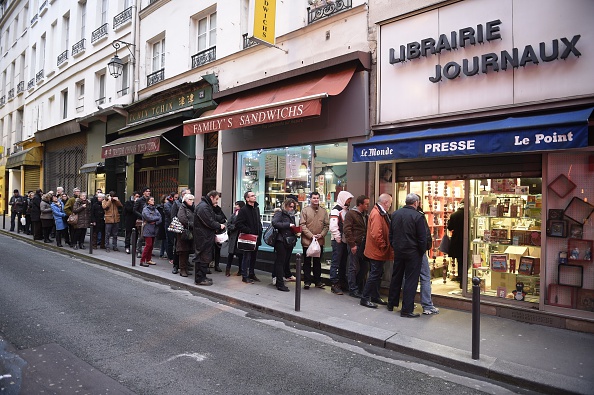
They are still deeply shaken and raw with grief. Their friends and colleagues are dead, and their offices are a blood-spattered crime scene with shattered windows. But on Wednesday, the journalists who survived last week’s Charlie Hebdo massacre pulled off what most print publications can only dream of: A runway hit issue that was sold out in hours and is expected to sell millions.
Exactly a week after gunmen stormed the offices of the satirical weekly, killing eight journalists and four others, people lined up for hours outside newsstands across France in the pre-dawn darkness, waiting to buy what is sure to be a collector’s item.
“I woke up at three o’clock this morning,” one young man told a French television channel outside a newsstand, a copy finally in his hands. “I’m happy, but at the same time I am really sad.” After distributors reported mid-morning that all French outlets had sold out, the editors opted to print an additional two million copies, bringing the total print run to five million. Until last week’s terror attacks, Charlie Hebdo distributed around 60,000 copies a week.
On eBay, copies of the newspaper were on sale for as much as $560.
The issue hit newsstands just as the Yemen-based al-Qaeda in the Arabian Peninsula released a YouTube video claiming responsibility for the Charlie Hebdo attack and saying it was “as vengeance for the Messenger of God,” apparently refering to cartoons of the Prophet Muhammad, which Charlie Hebdo has published in the past.
But if surviving journalists are cowed by the threats, their new issue on Wednesday did not show it. On the cover is the Prophet Muhammad with a tear rolling down his left cheek, holding a “Je Suis Charlie” sign under the words: “All is Forgiven.” The editors explained that the cover line was an expression of forgiveness from the paper’s staff toward their attackers. Editor-in-chief Gérard Biard made their intent clear on a French radio program saying: “It is we who forgive, not Muhammad,” referring to the speculation by some that the cover was a message about the paper being forgiven for publishing an image of the Prophet, an act that many Islamic leaders deem sacrilegious. In an interview with The Guardian, Charlie columnist Zineb El Rhazoui elaborated on the mood inside the publication: “We feel that we have to forgive what happened. I think those who have been killed, if they would have been able to have a coffee today with the terrorists and just talk to ask them why have they done this …”
But it became clear early Wednesday morning that the issue was not being received well by Islamic groups. The Islamic website Tabnak wrote that “Charlie Hebdo has once again insulted the Prophet,” according to the French news agency AFP, and Egypt’s Islamic organization Dar al-Ifa called the new cartoon “unjustifiably provocative,” and warned that it would spark “a new wave of anger.”
In a highly emotional press conference on Tuesday, the cartoonist Renald Luzier, known as Luz, 43, told reporters he had struggled through his trauma to create a cover drawing worthy of his dead colleagues; by chance, he had missed last Wednesday’s attack, having slept in late on his birthday. At times breaking down in tears, he said, “I wrote ‘all is forgiven’ and then I cried. We had our cover. We finally had our damn cover.”
Still, this week’s Charlie Hebdo, produced from a makeshift office within the Liberation newspaper, has little of the raw lampooning for which the satirical publication is famous. Instead, the 16-page issue seems like a tragic homage to slain friends, many of whose irreverant drawings are inside. There is also much commentary about the charged events of recent days, and even a touch of humor. The paper’s editor-in-chief Gerard Biard writes in an editorial about their own response to the huge outpouring of sympathy across the world. “What made us laugh the most is that the bells of Notre-Dame [Paris’s cathedral] rang in our honor,” he writes, a reference to the paper’s strong attacks on religion, including Catholicism. More seriously, he pleads for the French to fight against discrimination against Muslims. “The social situation of people of Muslim origin in France is profoundly unjust,” he writes.
Some of the cartoons in this week’s issue now seem tragically on point, given last week’s attacks. One reprinted cartoon, by the artist Jean Cabut, who was killed in last week’s attack, takes a dig at the French government’s inability to monitor terrorists within the country — a criticism that is being loudly voiced in regard to the three men who terrorized Paris last week. The drawing shows a government unemployment office with armed men looking for work, their Kalashnikovs over their shoulders, while the woman at the desk asks if they would like jobs as security guards at a supermarket.
The back page is a collection of cartoons from those who’ve survived, showing impressive humor under grim circumstances. One cartoon is titled “new friends,” and shows an imam and the Pope flanked by a priest from the Orthodox church and a Jewish man in a skullcap. And then there is a Grim Reaper himself, laughing over an issue of Charlie Hebdo and saying, “I’m subscribing.”
The two-page center spread is a cartoon account of Sunday’s march, when more than a million people were on Paris’s streets. And one cartoon covers Boko Haram’s massacre this month in northern Nigeria, which killed up to 2,000 people, with one gunman saying to another, “2,000 subscribers Charlie won’t have.”
Despite having barely recovered from their traumatic ordeal last week, there was serious reporting too, including by Charlie Hebdo‘s investigative reporter Laurent Leger, who examined how French officials had failed to stop attacks by three known jihadists, in part, he reports, because different branches of French intelligence worked separately.
With their colleagues not yet buried, Charlie Hebdo‘s survivors are now left to face possible new wrath for this week’s cover — before again wondering how to survive as a tiny satirical weekly, with its staff gutted. “There will be a future,” Biard told reporters on Tuesday. “We do not know what it will be.”
Masses Mourn Paris Terror Victims in France and Israel
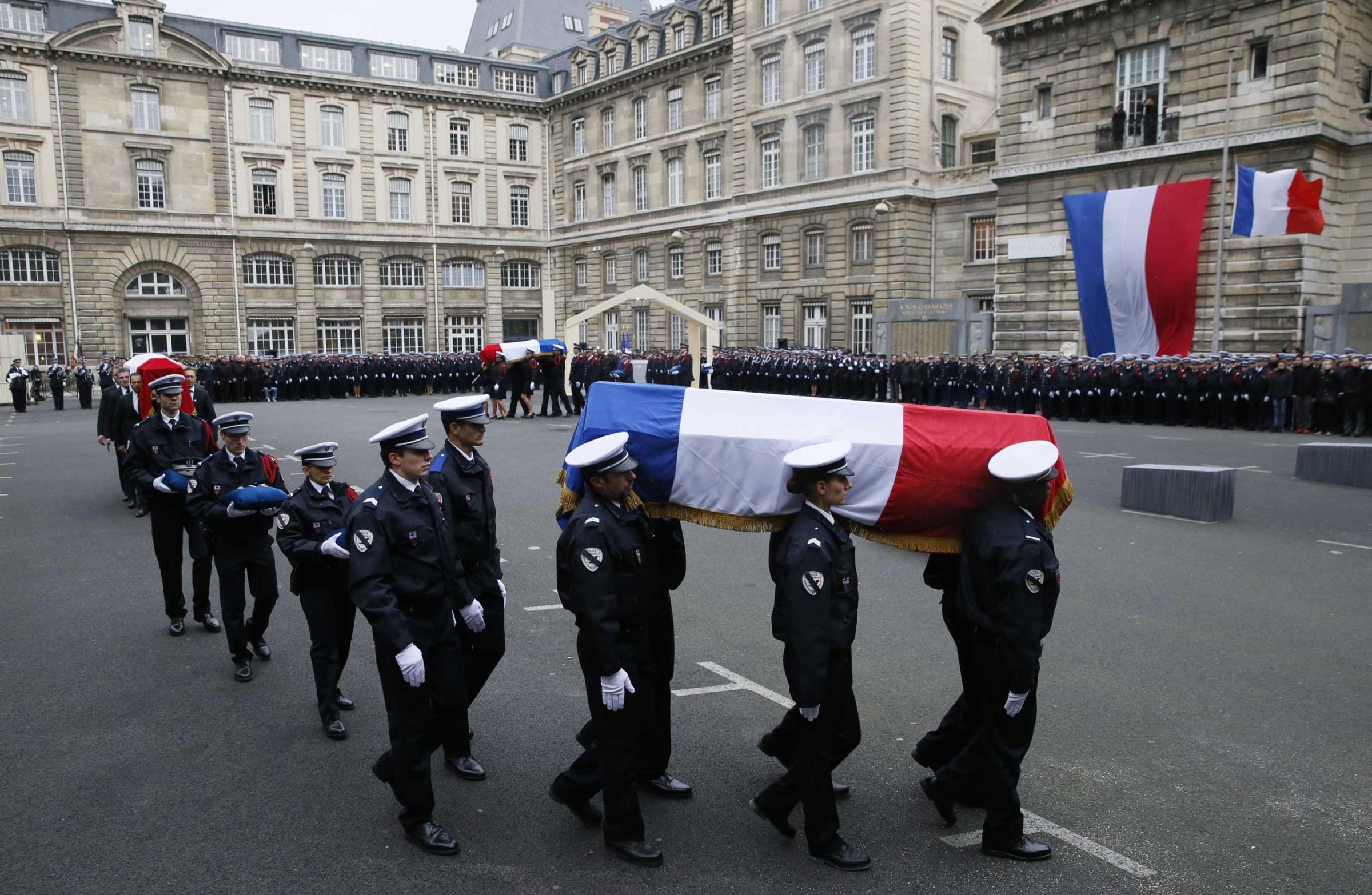
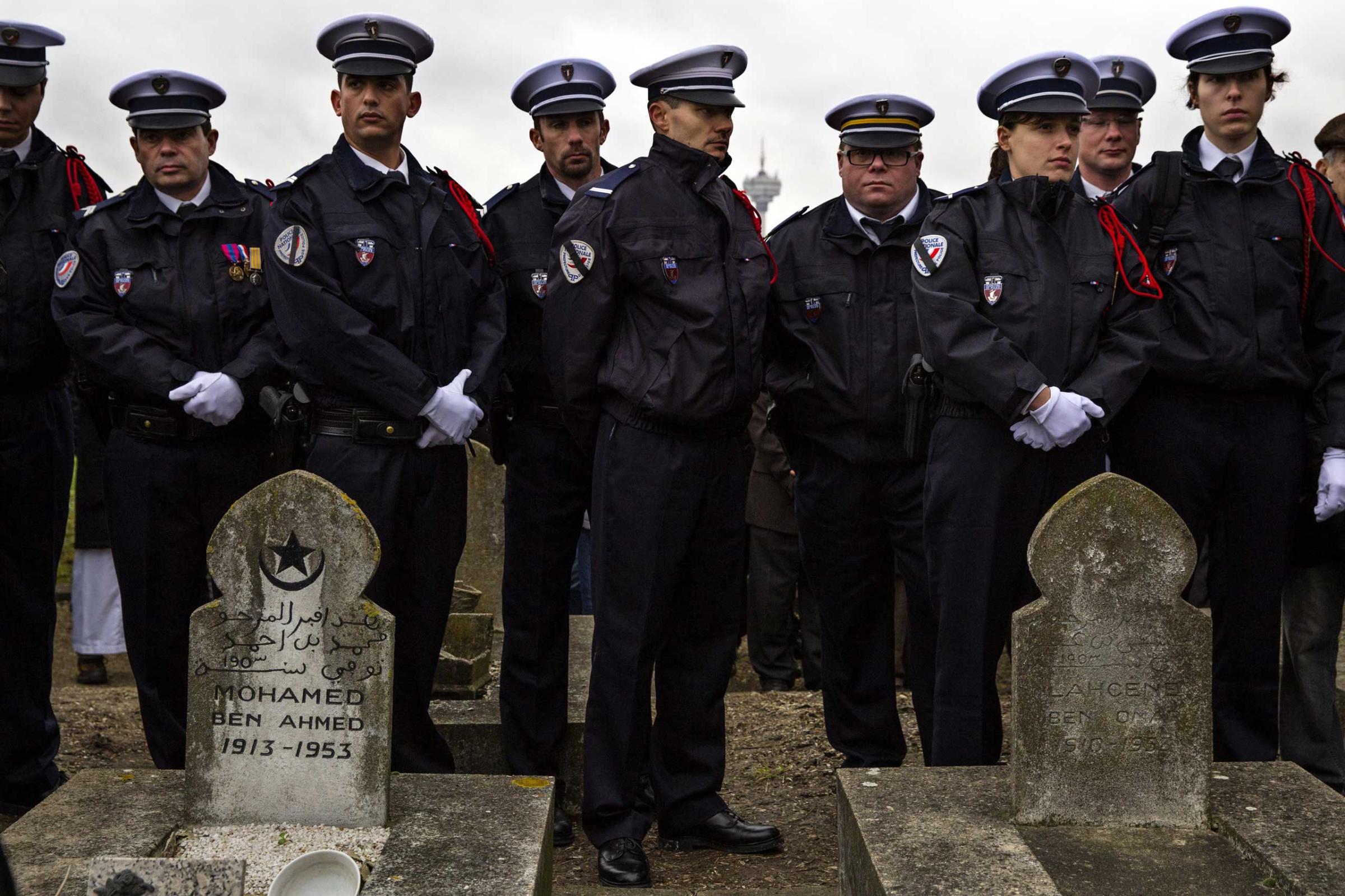
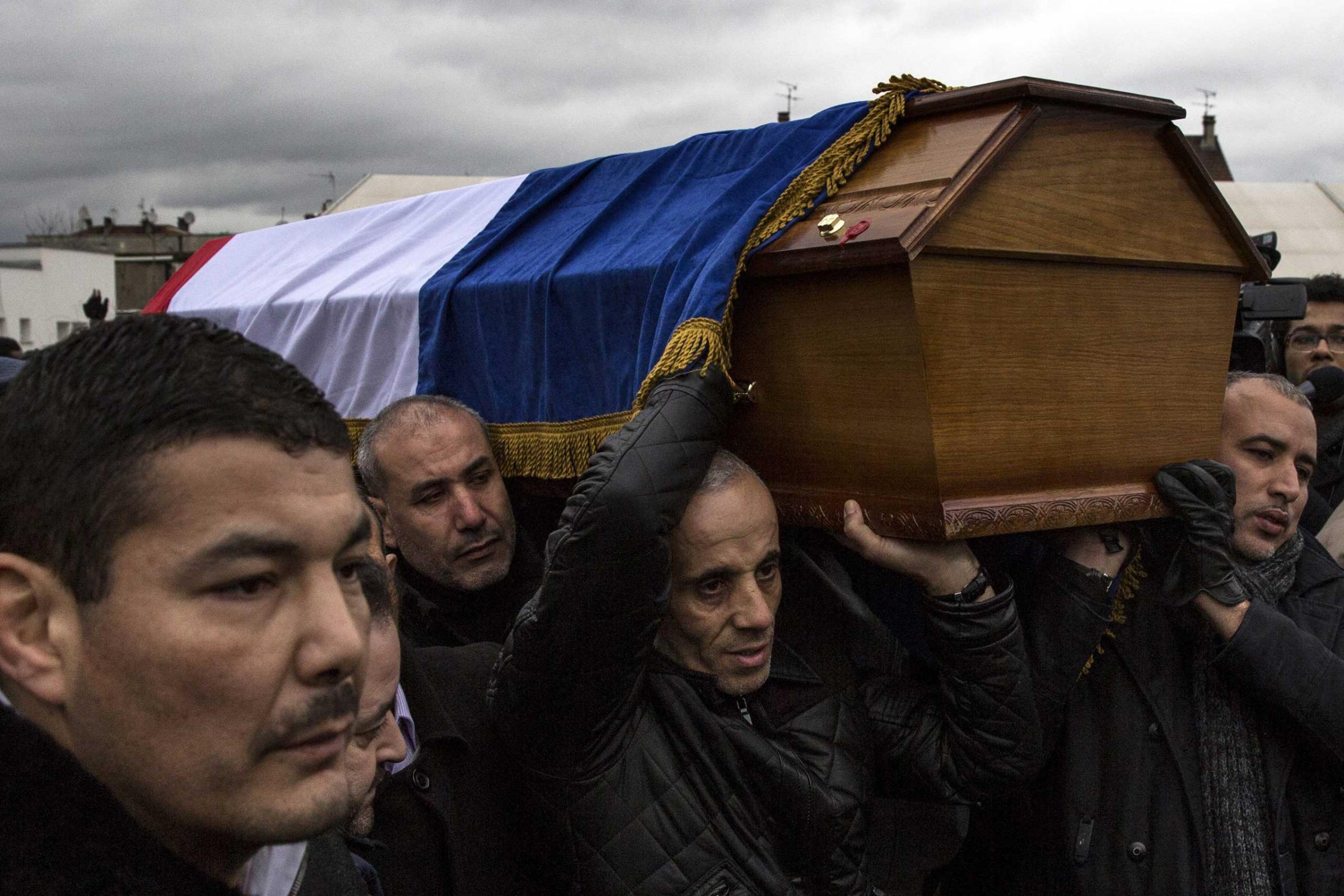
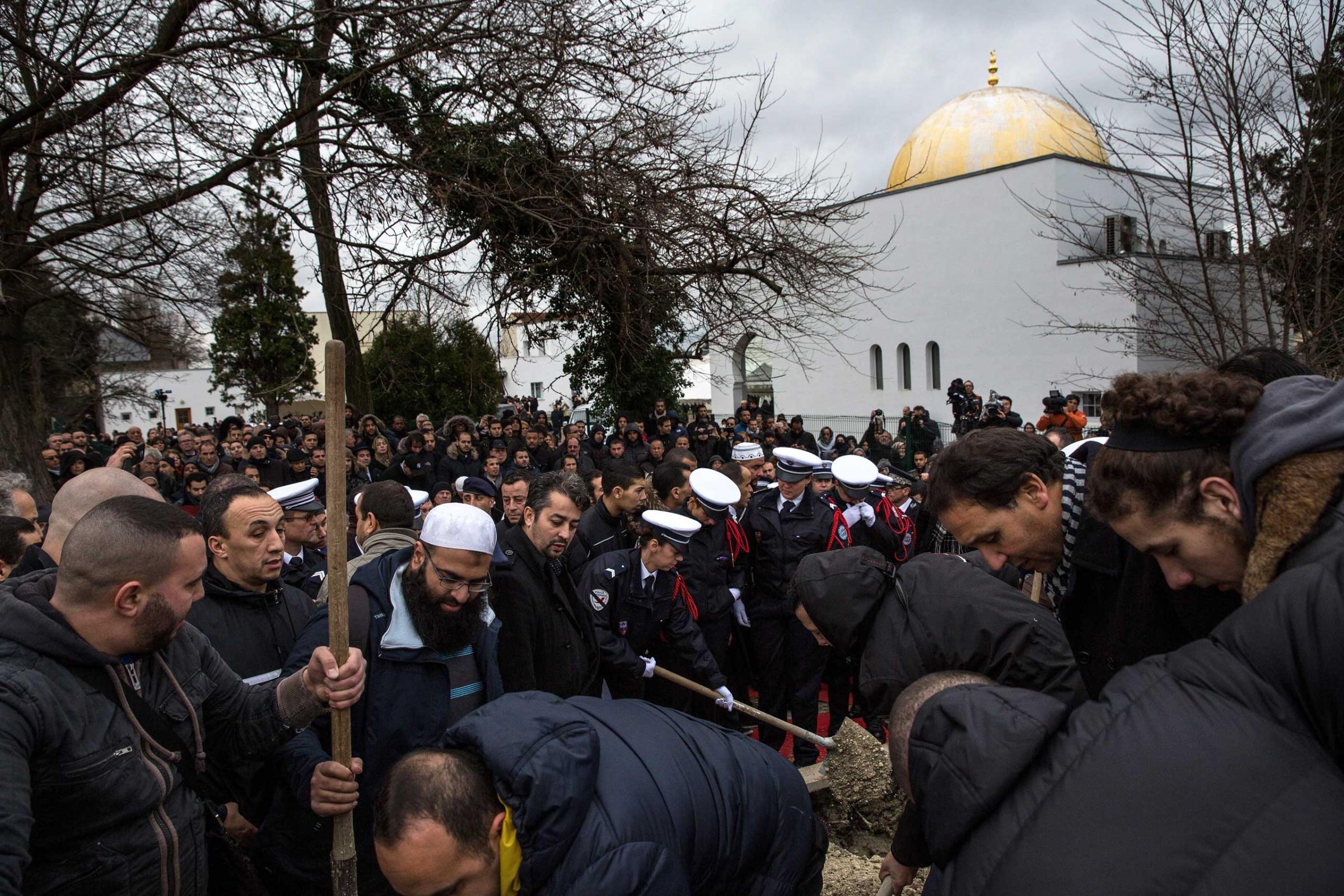
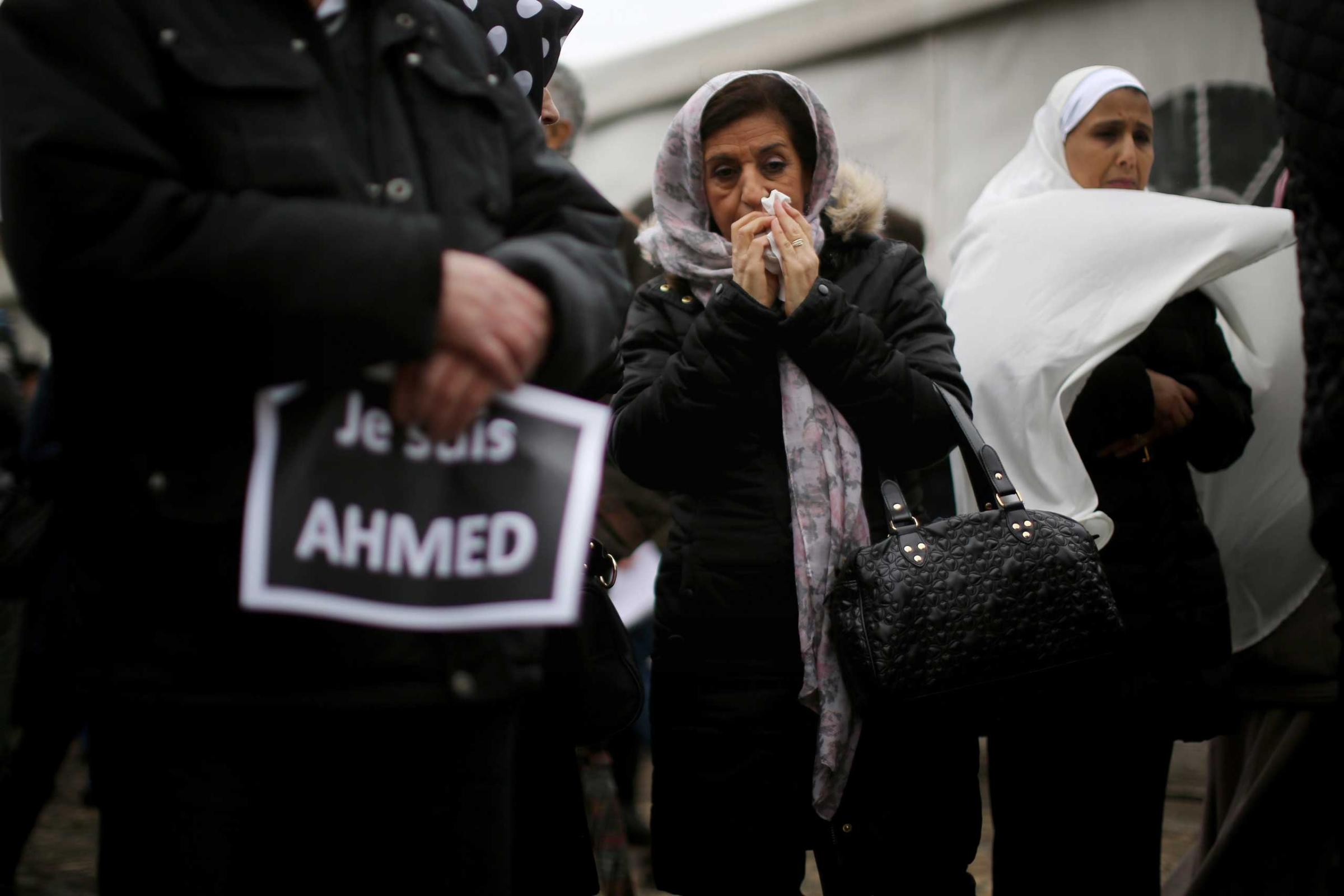
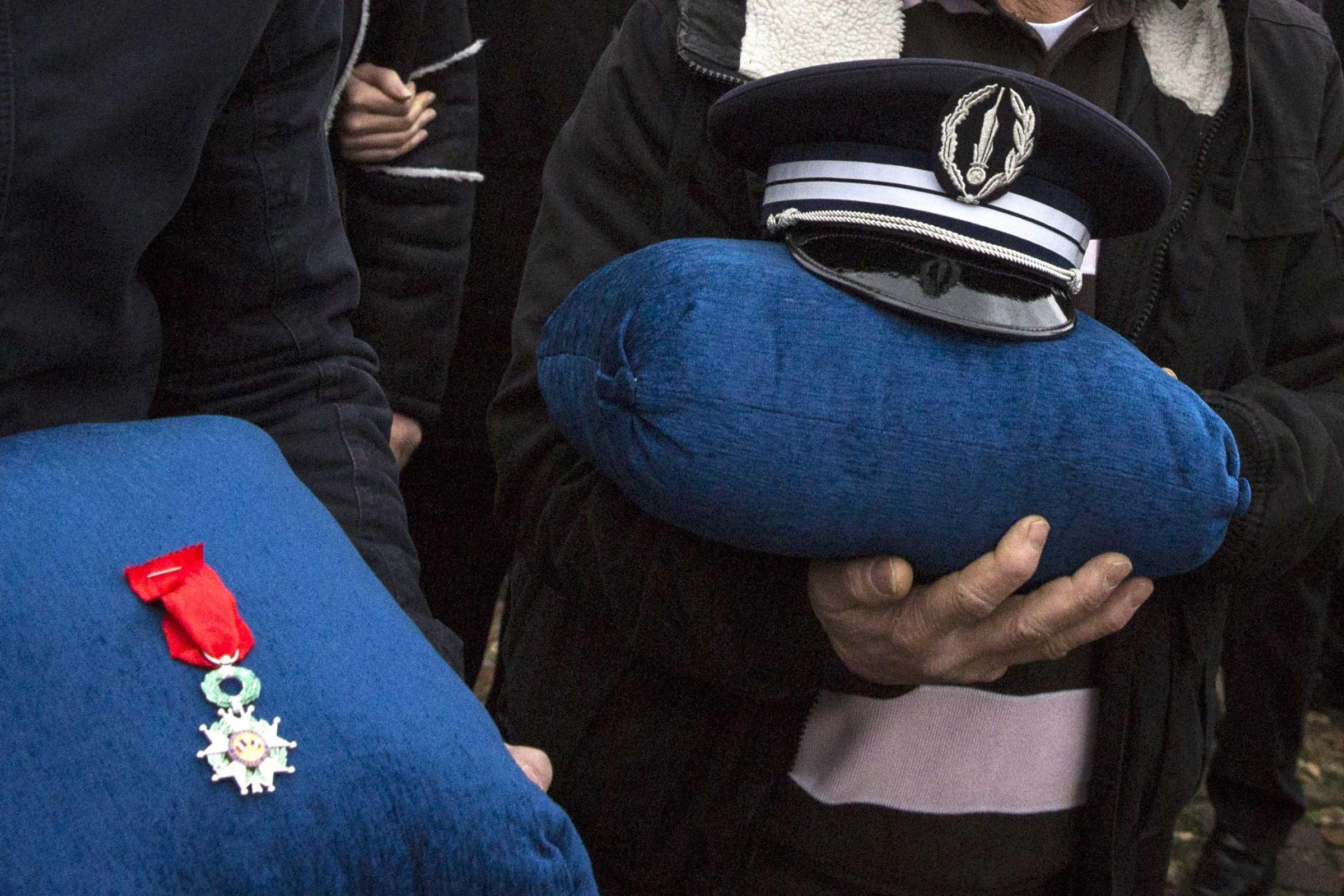
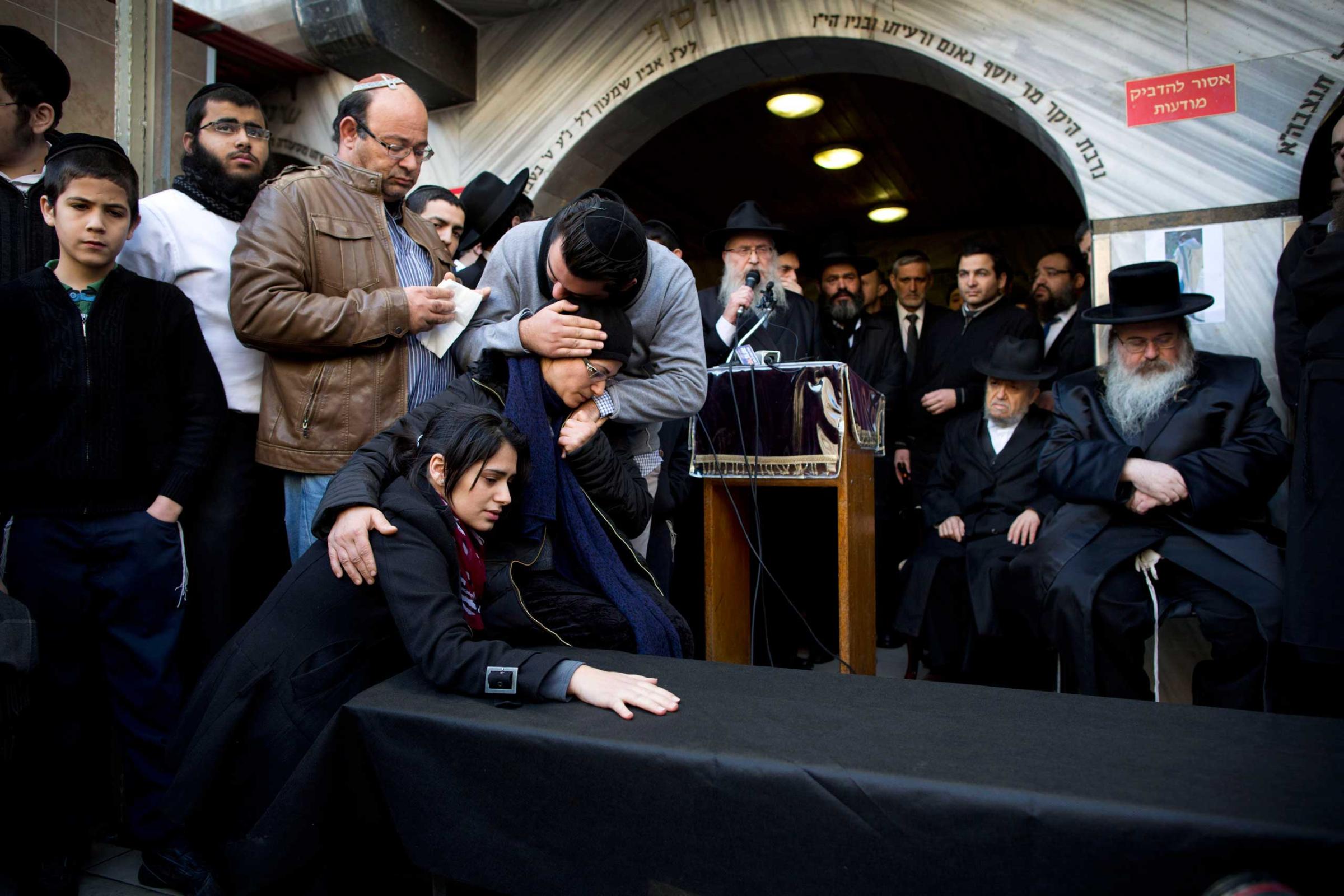
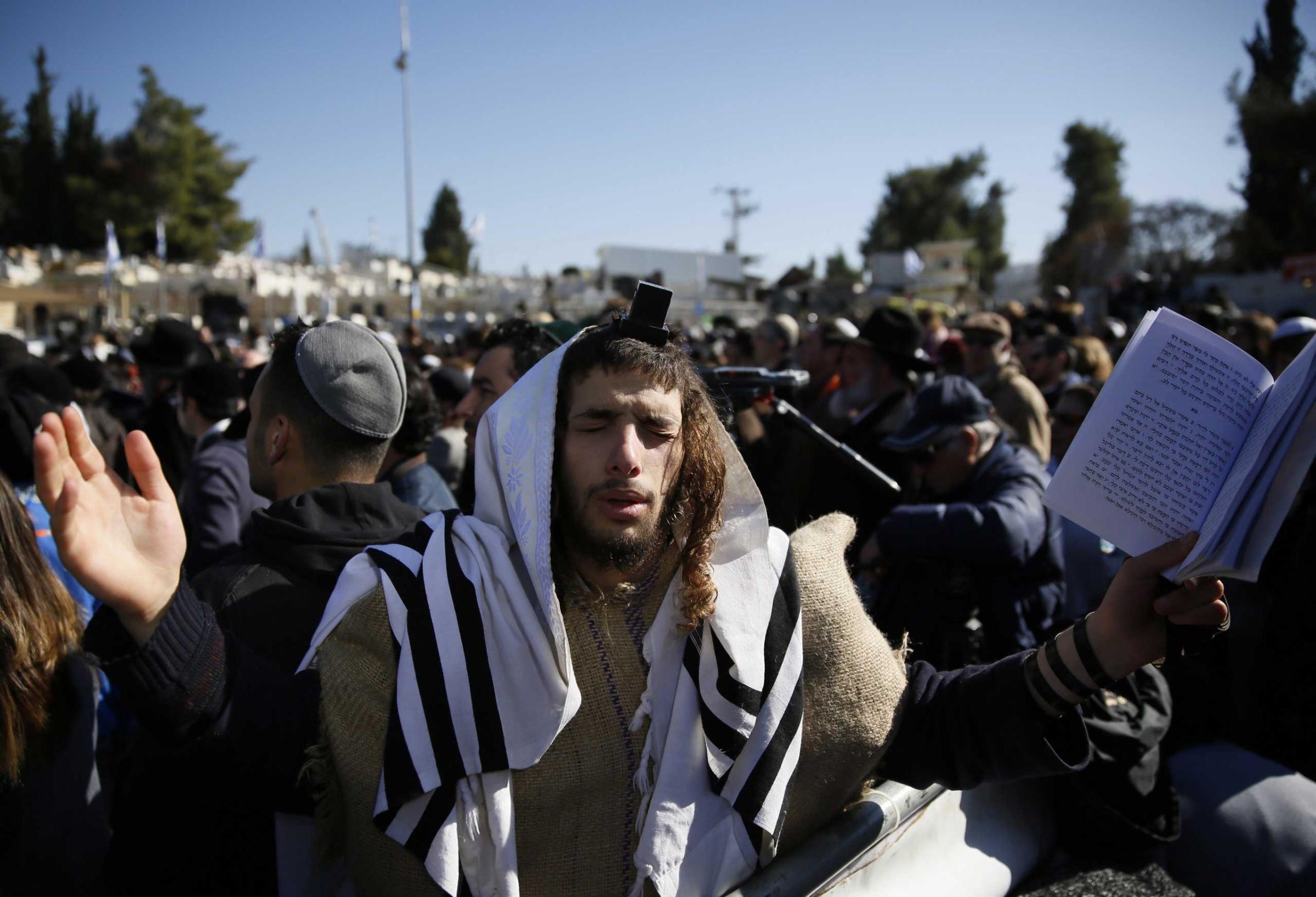
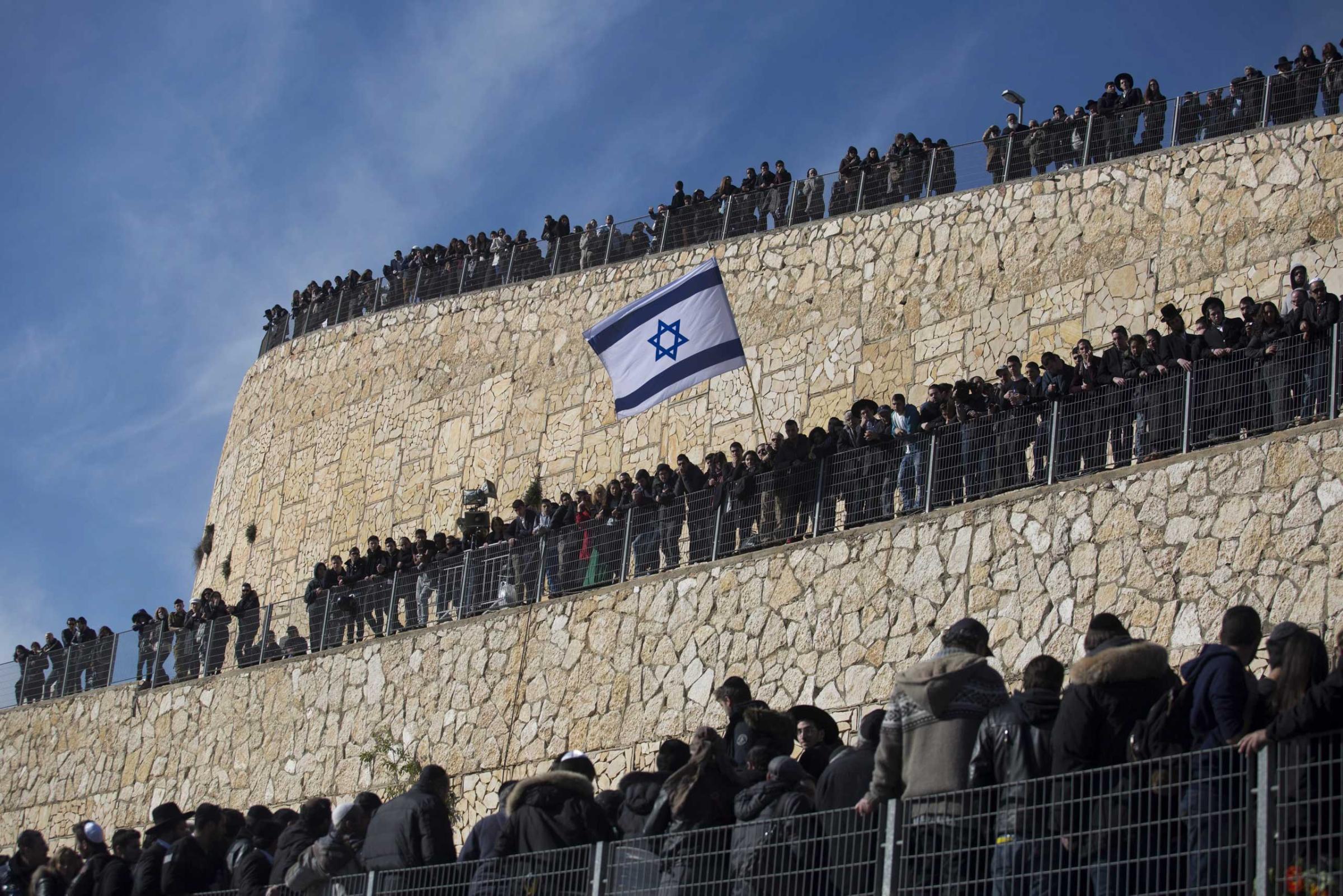
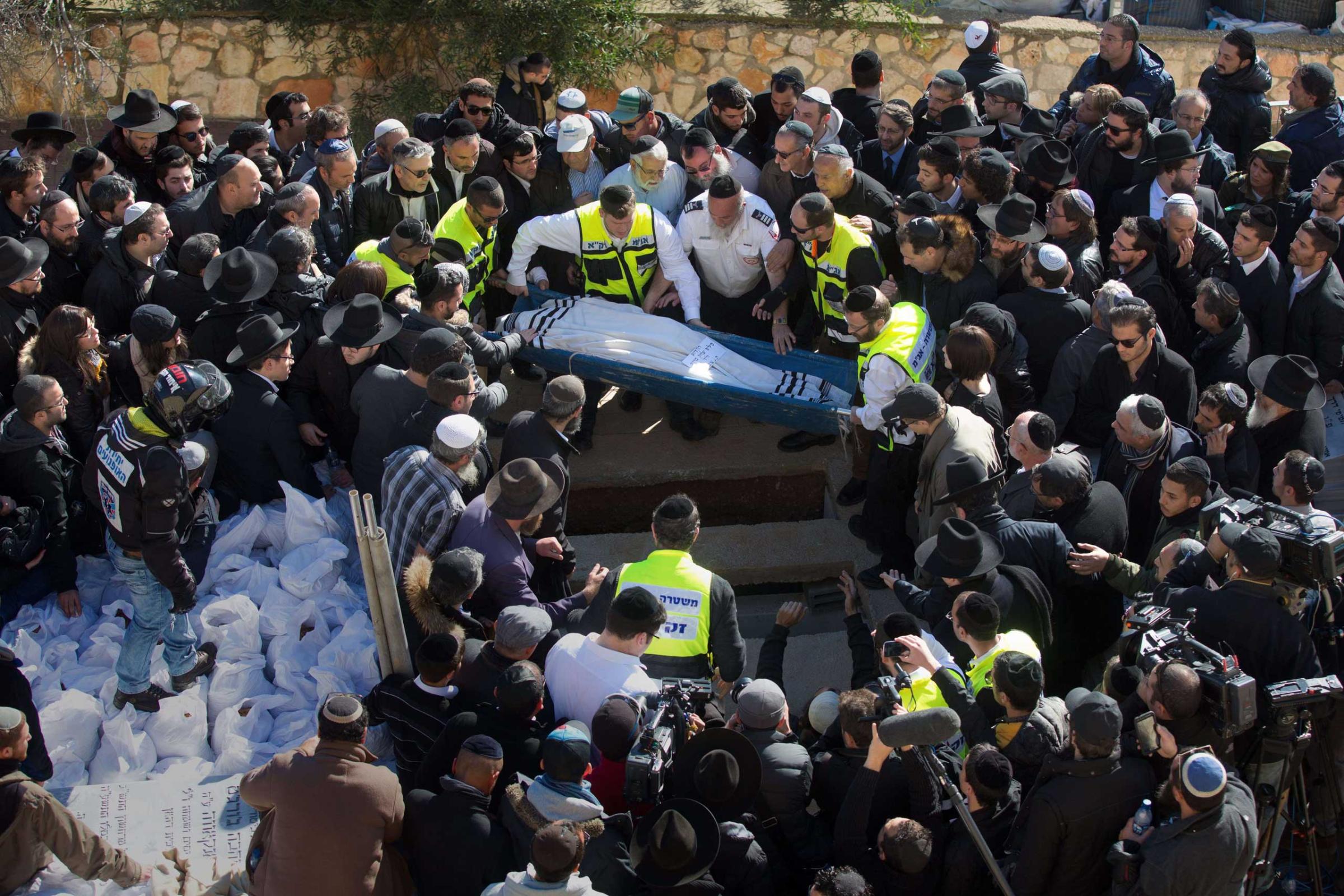
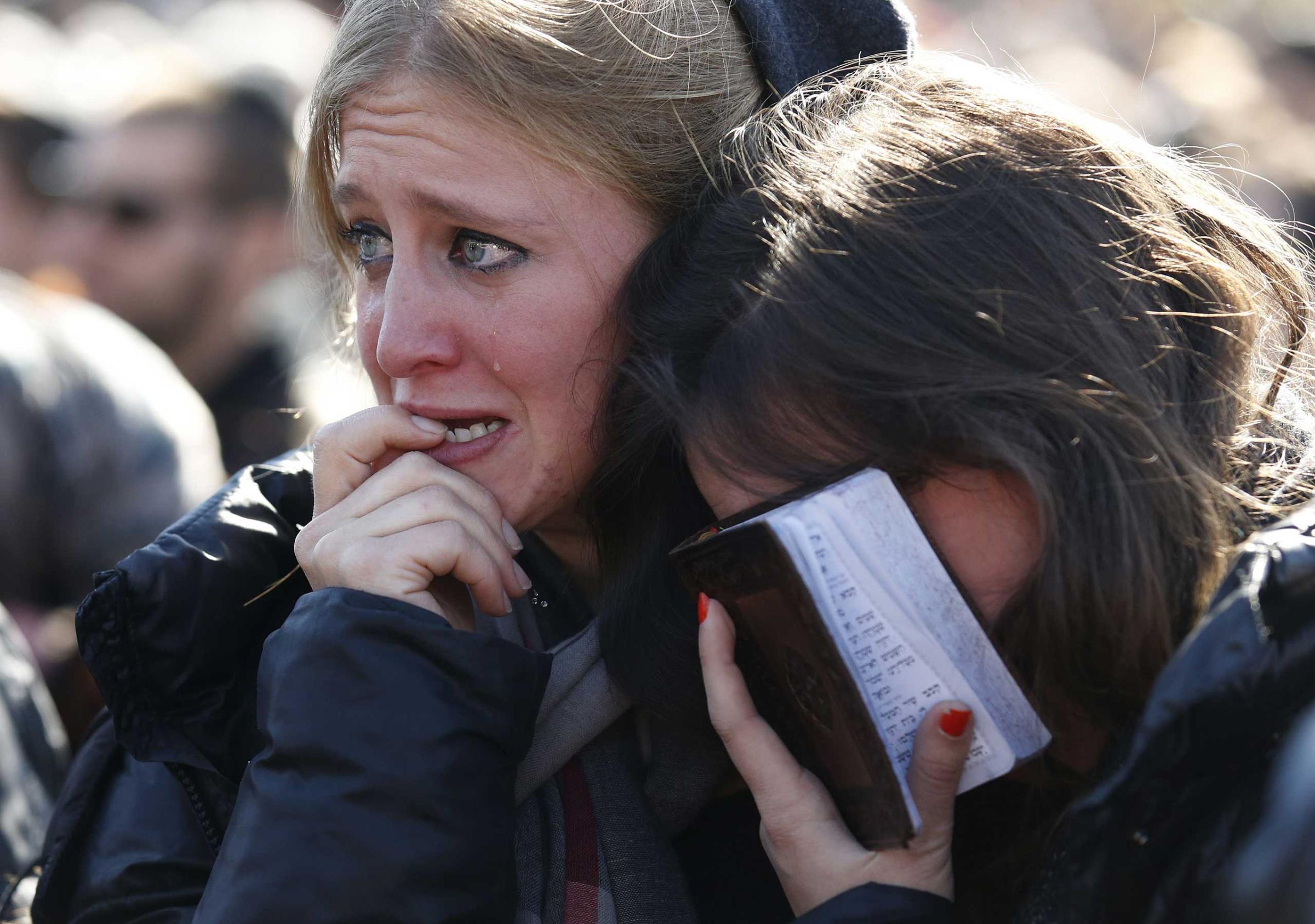
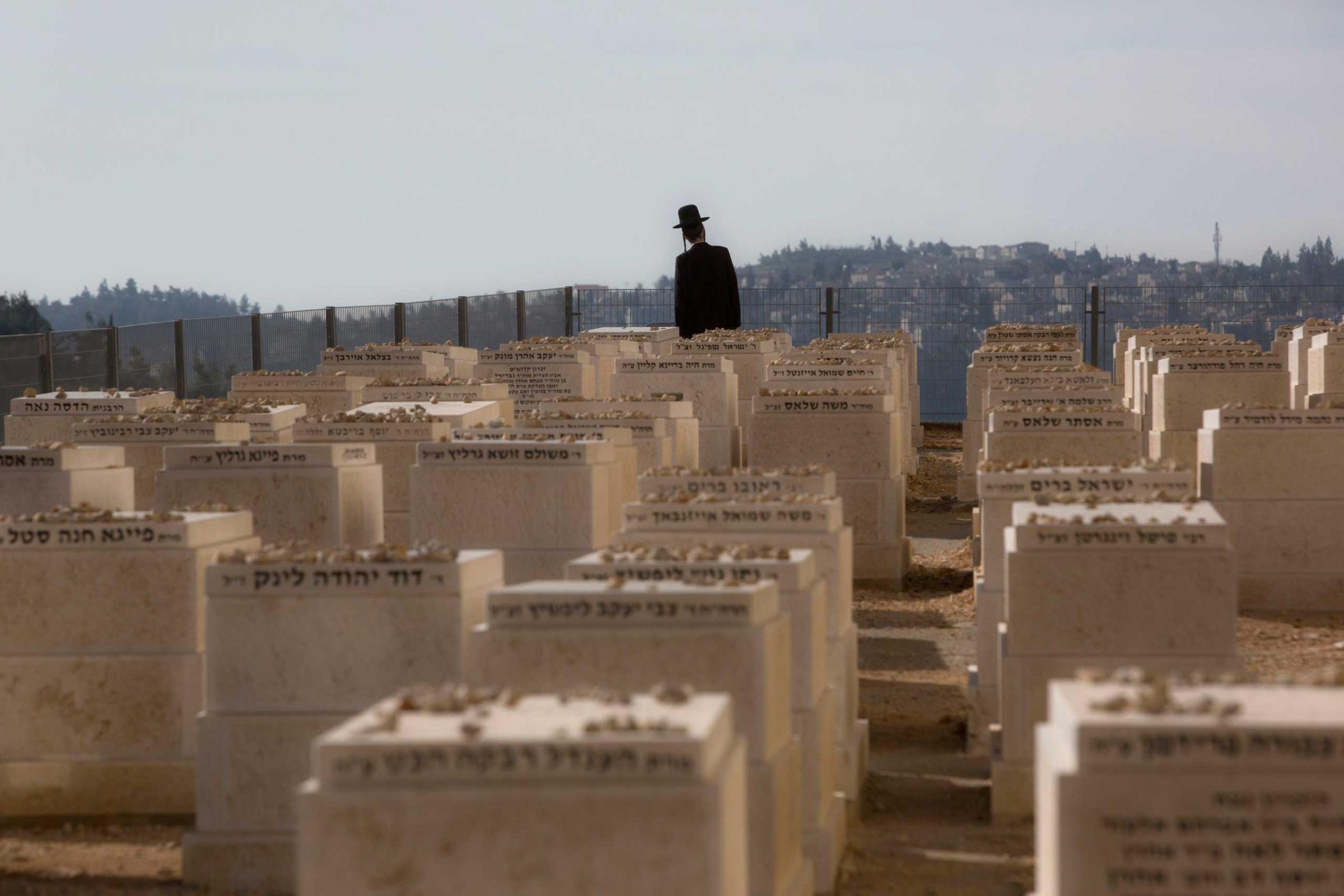
Read next: Yemen’s al-Qaeda Claim Responsibility for Charlie Hebdo Attack
More Must-Reads From TIME
- The 100 Most Influential People of 2024
- Coco Gauff Is Playing for Herself Now
- Scenes From Pro-Palestinian Encampments Across U.S. Universities
- 6 Compliments That Land Every Time
- If You're Dating Right Now , You're Brave: Column
- The AI That Could Heal a Divided Internet
- Fallout Is a Brilliant Model for the Future of Video Game Adaptations
- Want Weekly Recs on What to Watch, Read, and More? Sign Up for Worth Your Time
Contact us at letters@time.com